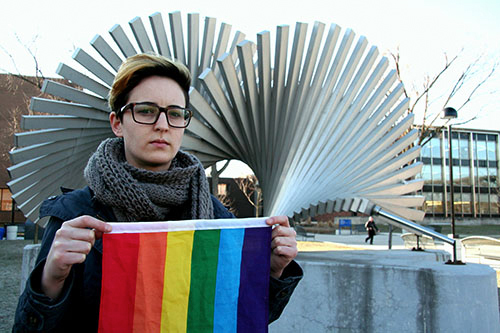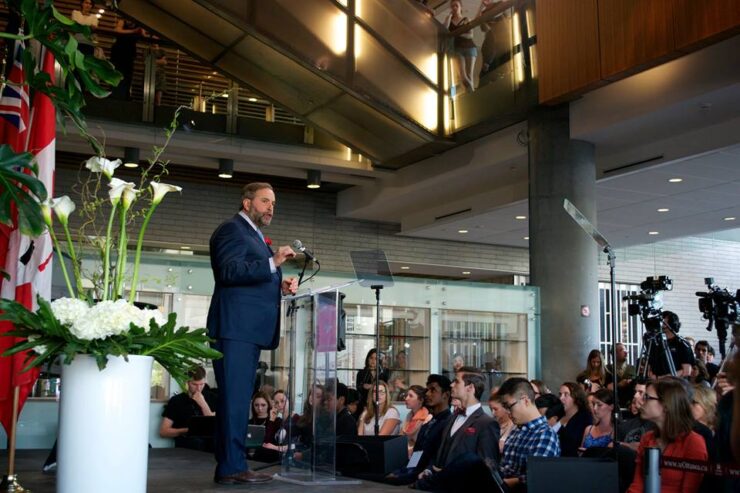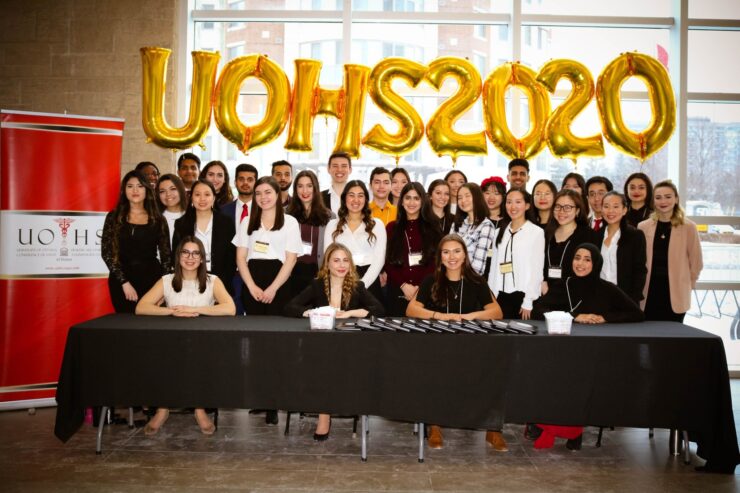University of Manitoba president apologizes
WINNIPEG (CUP)—UNIVERSITY OF MANITOBA president David Barnard made history on Oct. 27 by issuing an apology for the university’s indirect role in the residential schools system before the Truth and Reconciliation Commission in Halifax.
Barnard is the first university president to formally apologize for perpetuating the system. His emotional words were directed at the university’s Aboriginal students and staff for failing to recognize and challenge the abusive system and for educating individuals who carried out policies aimed at the assimilation of Aboriginal peoples in Manitoba, causing the loss of Aboriginal language, culture, and traditions.
Survivors of the residential school system, along with students at the university, reacted well to the apology, and are encouraged by Barnard’s promise to ensure the values of “First Nations, Métis, and Inuit cultures and communities are included in scholarship and research across the university.”
—Sarah Petz, the Manitoban
High STI rates force universities into action
FREDERICTON (CUP)—AS SEXUALLY TRANSMITTED infection rates soar across the country, university campuses—perceived hotbeds of sexual activity—are becoming prime locations to contract an infection.
The highest rates and increases of all STIs are among people between the ages of 15 and 24, and that demographic’s national average for chlamydia and syphilis has nearly doubled in the past 20 years.
Over 80 per cent of reported chlamydia cases are found in adults less than 30 years old, according to the Public Health Agency of Canada (PHAC), with the peak demographic for both men and women being 20 to 24 years of age.
Much like the PHAC, universities are now forced back to the drawing board to devise new initiatives to engage and inform students as the latest results reveal traditional methods are not working.
Sylwia Gomes, spokeswoman for the PHAC, said the agency is “working closely with provincial and territorial partners to monitor trends in STIs and to develop and disseminate tools for the prevention, diagnosis, and treatment of infections.”
—Colin McPhail, CUP Atlantic Bureau Chief
Feds slash funding for University of the Arctic
VANCOUVER (CUP)—THIS YEAR HAS brought two important pieces of news for the University of the Arctic (UArctic). First, the network of universities, colleges, and other institutions from around the circumpolar world aimed at furthering teaching in the Arctic region celebrated a decade of existence in 2011. Second, the federal government recently slashed UArctic’s funding by 75 per cent.
More than 30 Canadian institutions across the country are members of UArctic, including Yukon College, the University of Northern British Columbia (UNBC), Vancouver Island University, and the University of Saskatchewan. About half of all UArctic students are Canadian.
The cuts—which will see funding drop from $700,000 to $150,000—mean that UArctic will have to scale back initiatives such as its circumpolar studies program and north2north, which provides exchanges between member institutions.
—Arshy Mann, CUP Western Bureau Chief
Students don’t want to fly
VANCOUVER (CUP)—WITH UNEMPLOYMENT FOR young people in Canada at record highs, there’s at least one field that is in dire need of new entrants: Aviation. With baby boomers retiring and increased demand from the developing world, over 97,000 pilots will be needed in Canada and the United States alone over the next two decades.
Despite the need, Marion Harris, the student services coordinator at Coastal Pacific Aviation, which works with the University of the Fraser Valley (UFV) to offer a bachelor’s of business administration (BBA) in aviation, said the number of students training to hit the skies is dropping.
UFV’s BBA in aviation is one of a handful of programs in Canada that allow students to gain a commercial pilot’s license concurrently with a bachelor’s degree.
“We’re certainly not running at capacity by any stretch,” she said, adding there are currently 55 students enrolled in the program. “We could take on again as many students as we have right now … But again, there [are] big things holding students back.”
The biggest setback is money—UFV’s four-year aviation degree costs approximately $95,000. Harris said student loans in British Columbia cover less than half of the costs for the program.
—Arshy Mann, CUP Western Bureau Chief





